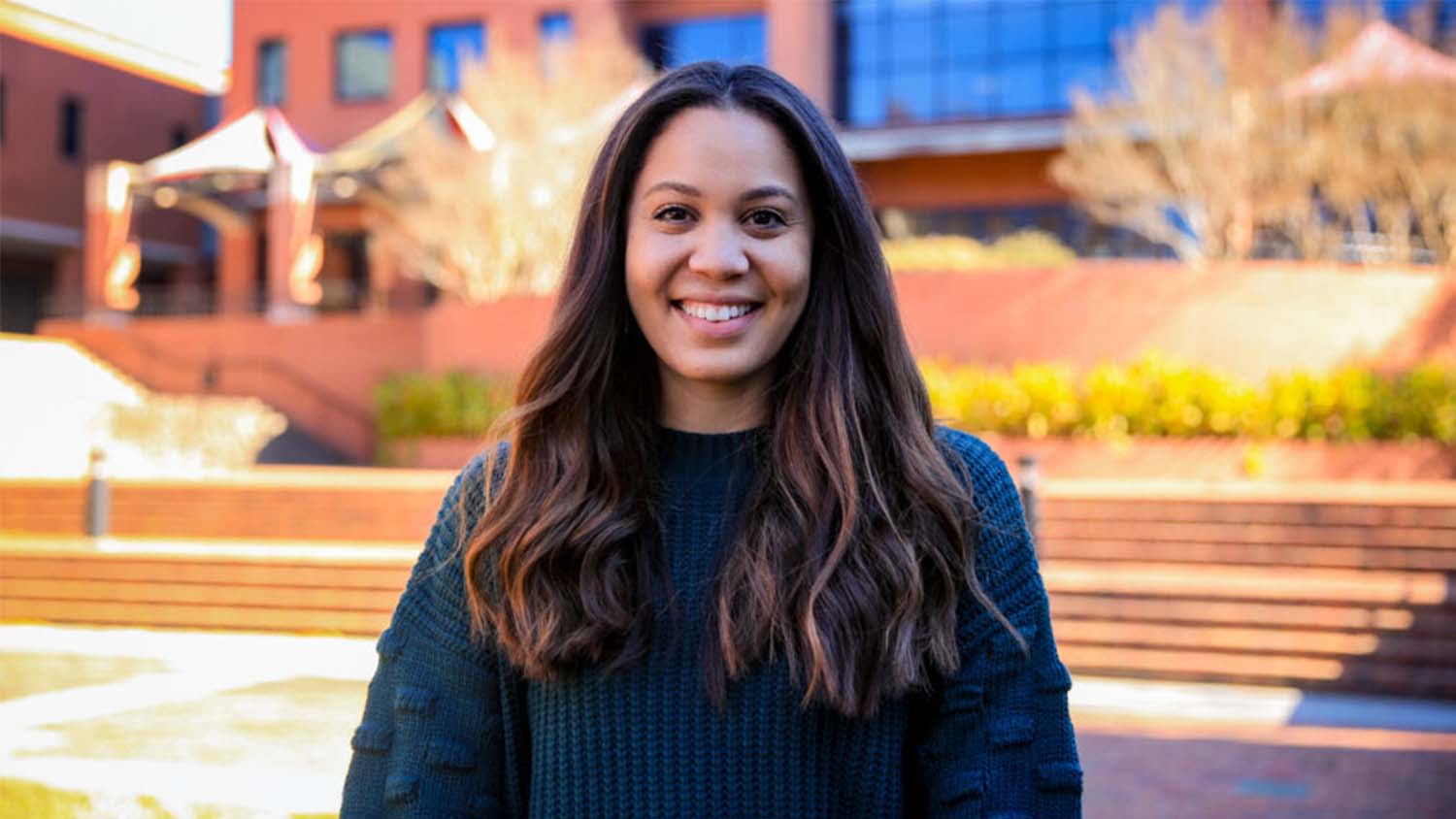Passion for Helping Under-Resourced Students, Background in Research Guides Recruitment Coordinator

By Sarah Stone
As a coordinator of recruitment and educational outreach, Merica Ivey’s principle responsibilities are helping prospective students realize the career opportunities available to them with a degree from the Wilson College of Textiles and guiding them through the application process. That’s a surprising career for somebody who readily admits they “went into college blindly.”
“I never really was looking at colleges based on what majors they offered. I was just like, ‘I want to play volleyball, and I know that college is supposed to be the next step,’” she says. “I started my recruitment process by myself, really just putting myself out there to all the schools in the Research Triangle area. I actually didn’t reach out to William Peace University. The coach at the time actually recruited me, but I visited the campus and I fell in love with it. I ended up having an amazing undergraduate experience athletically, but more so academically. ”
Ivey planned to major in a medical-related field to set herself up for nursing school. She found her major and discovered a passion for understanding human behavior during her Psychology 101 course. In addition to her psychology education inside the classroom, Ivey competed in the National Conference on Undergraduate Research and chose a topic that foreshadowed a career in academia. She spent two years researching the factors influencing college choice and retention for prospective students.
“I was interested to figure out if there were any sort of behavioral components or patterns to people who stay at the same university all four years and graduate, versus people who transfer out. That experience is what led me to have an interest in recruitment. I’ve always had this keen interest in understanding why people choose what they do.”

After graduating in 2016, Ivey landed her “dream job” at a top corporate recruitment agency, but she soon found it lacked the purpose and fulfillment she wanted from her career.
“I quit on my 90th day, and I was really just lost because I really thought, ‘I’m going to be able to actually put my research to good use and I’m really going to be helping people and changing lives,’” she remembers. “But that’s not at all what it was.”
Looking for a new job and a comfortable place to find her new path, Ivey returned to William Peace for an assistant coaching job on the volleyball team. She also started working as an admissions counselor for the university. That’s when she realized it wasn’t just her alma mater that she had an enthusiasm for, but also higher education. Noticing that “everybody around me had their master’s in higher education,” Ivey pursued a master’s at Liberty University. Her master’s capstone project centered around how advising practices could help retain under-resourced students and first-generation college students.
This research appealed to Ivey as a way to make the path to a degree smoother for students like herself. Ivey is from a Tier Two county, meaning that North Carolina’s Department of Commerce has deemed it in need of economic development based on factors such as unemployment rate and median household income. She was also the first person in her household to earn a bachelor’s degree.
“A lot of the college search process was very much on my own,” she says. “My mom is great at her career, but she really didn’t know how to help me search for or apply to a four-year university not having done it herself.”
So when she saw a position open up at the Wilson College specifically created to serve students from under-resourced regions of North Carolina, she knew she had to apply.
“I thought, ‘This is exactly what I just finished my master’s capstone about, and this is exactly the population of students that I’m passionate about working with,’” she says. “‘So let me just apply, and if it’s meant to be for me, it’ll happen.’”
In addition to her recruitment duties, Ivey helps coordinate the Summer Textile Exploration Program for high school students and serves as a secondary advisor for Textile Pioneer Scholars. Each of these scholarship recipients come from a Tier One or Tier Two county, and many are also the first member of their family to go to college. Ivey has the opportunity to apply her thesis research in the real world to help these students succeed.
“To some extent, my role is to be their academic mentor,” she says.
She says mentoring a uniquely driven group of students keeps her motivated.
“The students we work with are definitely special and one of a kind, and as you can tell from our alumni, they all go on to make a big difference in the industry in the world.”
The Next Generation of Our Industry’s Leaders Starts Here
Learn more about our Textile Pioneer Scholarships and meet the 2025 Class of Textile Pioneer Scholars.
- Categories:


